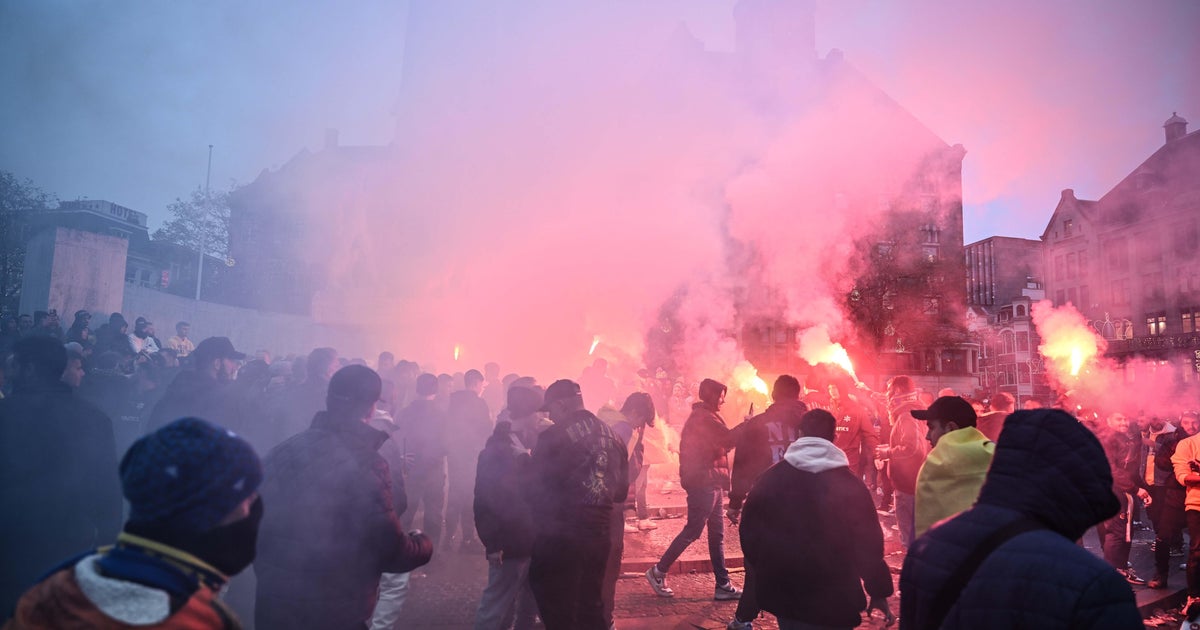As domestic violence surges, BBC journalist anchors news with hotline written on her hand
London -- After Britain's national domestic abuse hotline reported a 25% surge in calls and a 150% percent increase in traffic to its website since the coronavirus lockdown began, one BBC News journalist scrawled the number for the hotline on her hand as she anchored the news to the nation.
Victoria Derbyshire presented the headlines on the BBC's main news channel with the number 0808 2000 247, which is the hotline women in the U.K. can call if they need help, written on the back of her hand.
"Quickly rising need"
Experts have warned that self-isolation could lead to an increase in domestic abuse, as people are forced to stay in their homes. At the same time, they say opportunities for victims and survivors to access help could dry up, as they have fewer opportunities to spend time away from their abusers.
"There's a very quickly rising need," Suzanne Jacob, chief executive of the domestic abuse charity Safelives, told CBS News. "But in some places, actually we've seen a decrease in that, and that is just as worrying to us, because it probably means that there's suppression of somebody who's trying to access help but can't find the means."
In France, a program has been launched in pharmacies where women can use the code word Mask 19 to alert pharmacists to their situation. The U.K.-based charity Refuge, which runs Britain's national domestic abuse hotline, says alternative means to access help needs to be developed.
"Ordinarily, the window for women to seek help is extremely limited," Sandra Horley, chief executive of Refuge, said in a statement Monday. "During periods of isolation with their perpetrators, this window narrows further. It is critical that women have alternative, digital ways of accessing help."
"Perfect storm"
In addition to it being more difficult for some victims and survivors to access the help they need, as demand for services increases, Jacob said that funding in the U.K. is drying up.
Lockdowns to prevent the spread of COVID-19 have forced charities to close second-hand stores and cancel trainings, both of which are vital sources of revenue for them. Some services have lost around 40 percent of their income, Jacob said.
"They've got this sort of perfect storm around both needing to try and keep their organization running and directed to all of the people who desperately need their help -- with that rising level of need and complexity around how to help people -- but at the same time… they're taking massive hits to their income," she told CBS News. "They're trying to pivot to respond to people who are locked behind doors and not safe."
Late Sunday, U.N. Secretary General António Guterres highlighted the increased risk of domestic abuse caused by the coronavirus pandemic and called for plans to tackle the issue to be included in every national response.
"Together we can and must prevent violence everywhere, from war zones to people's homes, as we work to beat COVID-19," he said.



